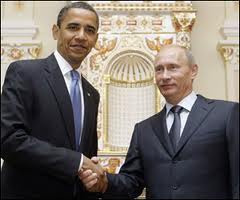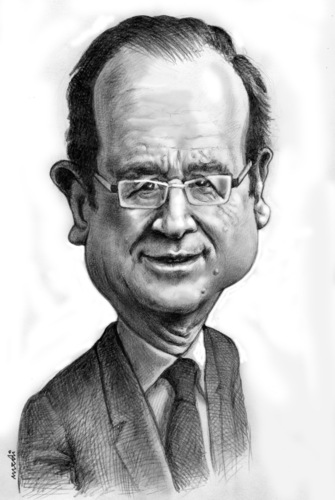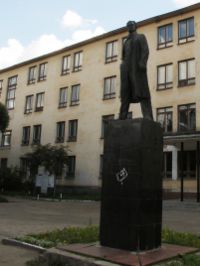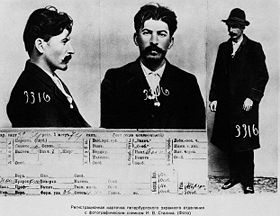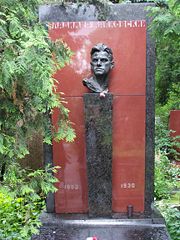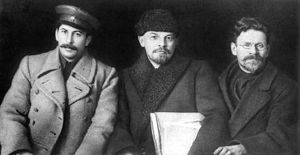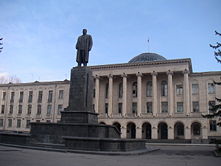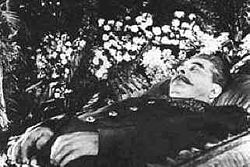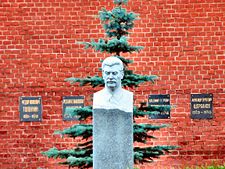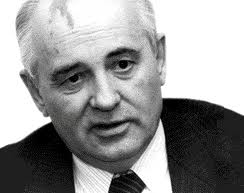A Foreword by Gaither Stewart
War under false pretenses
Strobe Talbott, the Deputy Secretary of State under [Bill] Clinton and the leading U.S. negotiator during the war, later denied that “the plight of the Kosovar Albanians” was the driving force behind the campaign, claiming the real reason to be “Yugoslavia’s resistance to… [the] political and economic reform [imposition of neoliberalism—Eds]” that had been driving forward the liberalisation and deregulation of markets throughout the region.”
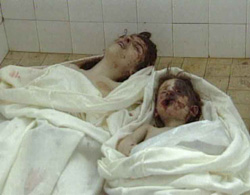
Dalibor Stanojevic, a 30-year old political activist and a software engineer in Leskovac, Serbia, has offered this explosive testimony, a cry from the heart of the Balkans, a J’accuse against the criminal US-led attack on Serbia-Yugoslavia in 1999, which from the start aimed at (and achieved) regime change in Belgrade, elimination of the last “Communist” stronghold in East Europe, and occupation and detachment from Serbia of the mineral rich and geographically strategic region of Kosovo. When I was introduced to Dalibor by a mutual Serbian friend, he wrote me an e-mail expressing his surprise and pleasure that someone in the West was interested in the plight of Serbs since the US aggression against that nation lasting through much of the 1990s.
“I’m glad that intelligent people in the West resist the brainwash concerning the situation in the Balkans,” Dalibor wrote. “The problem of Serbs with the West is long-lasting. Centuries have passed, ideologies and governments have changed but the behavior remains the same: in the eyes of the West, Serbs are always enemies. It’s no wonder that for the average Serb today there is little difference between Nazi Germany and NATO, which in our regard is the realization of Hitler’s ideas. War, which should be the last option in international relations, for Nazi Germany last century and today for NATO, is the first. Two thousand years pass and some things never really change. Some Western intellectuals are still marching on Stalingrad, while the USA and NATO steal our lands and impose their hegemony over us.”
Stanojevic’s article below is a plaintive though rabid cry against injustice arriving from lands largely forgotten or never known in the West—I would wager that few people west of ex-Yugoslavia even know where the important city of Leskovac is located. His J’accuse reflects the opinions and feelings toward the West and an interpretation of a history that seems like only yesterday to the majority of Serbia’s eight million people. The NATO war against Yugoslavia is not an event of “a long time ago,” words used by ex-New Mayor Rudy Giuliani on a recent visit to Belgrade. —GS
__________
NB: We have also included an analysis by Peter Schwartz, of WSWS.ORG, on the repercussions of Western meddling in the Balkans. This analysis is found in the addendum.
___________________________________
By Dalibor Stanojevic
(Leskovac, Serbia, The Balkans, East Europe) For years now every Serb has been wondering if the NATO attack on Yugoslavia during the 1990s, which culminated in occupation of many lands of ex-Yugoslavia of which Serbia was the major republic, represents a new episode in Serbian-Western relations. Or was it a long planned attack that simply had to wait for the proper time to happen?
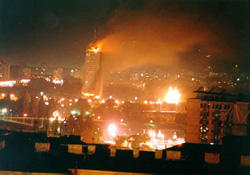
Belgrade burns after night bombing raid.
Serbs do not consider themselves war criminals, terrorists or murderers who attacked their own Kosovo province and committed genocide there. Every Serb knows that the USA and NATO intentionally broke up and took what it wanted from ex-Yugoslavia and at the same time saved Albania. (The Serb-Albanian conflict is an old one in the Balkans. Albania, south of ex-Yugoslavia, has always had its eyes on the southern Serbian province of Kosovo, Serbian for hundreds of years, but populated chiefly by ethnic Albanians. Long range Albanian policy has long revolved around the creation of a Greater Albania to include the ethnic Albanians of Kosovo, Macedonia and Greece. Editor’s note)
(The massacre at of Rachak on January 15, 1999 was a famous episode in the Kosovo War in which some 40 ethnic Albanians were killed by Yugoslav forces. Belgrade charged that they were all members of the (Western supported) rebel KLA (the so-called Kosovo Liberation Army) who were killed in combat with state security forces. The killings there were a major factor in the NATO decision to unleash its full scale war on Yugoslavia. The incident was the subject of three forensic reports, one Yugoslav, one Belorussian and one Finnish. The first two concluded that the victims were not civilians. At the time the Western international community did not accept the Yugoslav version , charging Serbia instead with genocide. This was the justification for the bombings of Serbia, and was one of the chief charges against Slobodan Milosevic at the Hague International Court and the motivation for the war against Serbia: allegedly aimed at stopping the genocide. The Serbian government still declares that the victims were all members of the KLA. Partial Western recognition of the Serbian version of the events arrived only after the war and after Kosovo’s detachment from Serbia and its independence.
Even the Hague International Court today declares that “no genocide was committed against Kosovo’s Albanian peoples”. Even German political leaders admit that during the Milosevic regime Serbs did not target Albanians as such, only terrorists. Those terrorists belonged to the Western- supported KLA, so-called Kosovo Liberation Army, whose chief activity has consisted in dealing in arms and drugs and eliminating Serbs.
Recently, the former Mayor of New York, Rudy Giuliani, was in Belgrade to support the pro-West political party, SNS—a breakaway faction of the nationalist Serbian Radical Party—which favors Serbia’s accession to the European Union. When asked about the bombing of Serbia in 1999 and his support for targeting civilians, Giuliani refused to answer, saying “that was a long time ago.”
I am 30 years old and at age 17 I heard reports of bombing every day during that war. Giuliani conveniently forgot that Serbian officers and soldiers were prosecuted and jailed for their actions during the war. But in NATO countries no one has been prosecuted for bombing hospitals, passenger trains, buses, the downtowns of Serbian cities—in fact, crimes against humanity, which the whole world is now learning about. But for Giuliani and his nation it was not terrorism. It was not a war crime. It was simply something that happened “a long time ago.”
Only the USA appears to have a license to kill. It is judged to be a long time ago when the US burned our country to the ground in the name of democracy, human rights and other such humanitarian bullshit. But when two buildings are destroyed in New York, allegedly by Al-Qaeda, the incident is branded as terrorism and is never forgotten. Truth is anything that is in the interest of the USA.
No, gentlemen of the West, we do not want to capture you because you hate Serbs or because of your false claims about protecting ethnic Albanians in Kosovo. No! You, Bill Clinton, you, Madeleine Albright and the others, we want to put you in jail for your war crimes against Serbia. No ideology or politics gives you the right to kill innocent people as you did in Serbia.
As a rule US politics as is US truth are the consequence of its economic interests. So why bomb Serbia? Firstly, Serbs are aware of the powerful Albanian lobby in the USA that has paid out some $600 million in the last 30 years to gain US protection. They paid with money from the trade in heroin that the Albanian mafia sells throughout Europe and the USA. (The Albanian mafia is very active in drugs trade, especially in Italy and Germany. Ed.)
The second reason for the bombing of Serbia in 1999 was because Serbia is a strategic area of the Balkans for the US future war against Russia. It was necessary to pacify Russia’s most important ally in Europe—Serbia, or ex-Yugoslavia. It has been said that Serbia is a “a house with two doors, one leading to the East and the other to the West”. We Serbs know that “both doors must be kept open, because anyone who can offer Serbian citizens anything to improve our situation is welcome.
The third and most important reason for the war against Serbia was in order to detach Kosovo from Serbia. The USA thus got its hands on 70 billion tons of coal reserves, millions of tons of nickel, zinc, gold, silver and other natural resources in the Serbian province of Kosovo.
The US plan must have been to occupy Kosovo, exploit it, and when everything of value has been stolen, give Kosovo back to Serbia—and everyone will be happy. The USA and NATO, and the ethnic Albanians in Kosovo will keep the houses and the wealth stolen from Serbia. But as Giuliani says, that was all a long time ago.
The epilogue will look like this: the US media created the war against Serbia; the USA occupied our territories, burned 300 medieval churches, stole iron, oil and coal, gold and silver; and then went home. In The Hague, Serbs will be forgiven for their “crimes” and the court will prosecute a few Albanians to show its objectivity.
But is that the end of the story? No, that is not the end. I don’t believe people in the West care what Serbs think of NATO. No one in the West can even imagine what Serbs think. I’ll tell you what they think. Many, if not most of us, consider NATO a satanic force, just as Nazi as was Nazi Germany and Austria, as fascist as fascistic Spain—and France and England.

Bomb crater near school
An average Serb makes this comparison:: Hitler’s Reich caused the deaths of 55 million people and created unimaginable material damage. Hitler too had interests for which he fought regardless of the number of victims and crimes against humanity. The US-NATO alliance, on the other hand, has murdered 60 million since 1945: in Vietnam, four million; North Korea, five million; Somalia, one million; Iraq, two million; plus the wars in Panama, Cuba, Cambodia, Laos, Libya and Serbia. Wars fought for their own interests, regardless of the numbers of victims and the suffering of the innocent, have been supported by their informational artillery such as, again, CNN, BBC, Sky News, even Al Jazeera, imitating Nazi propaganda methods. Serbs also recall that Hitler didn’t target our hospitals; but Nato did. NATO bombed two of our oil refineries, causing the greatest ecological disaster in the Balkans since WWII: 100,000 tons of oil burned, contaminating half of the Balkans.
We Serbs are well aware of the US use of depleted uranium in Serbia and Iraq, forbidden by the Geneva and other UN conventions. Hundreds of thousands of Iraqi children have died because of depleted uranium. In Serbia, NATO murdered 3500 civilians and 40 soldiers of the Yugoslav army. That is, only 1% of Serbian victims were soldiers while 98.8% were civilians. Collateral damage or the intentional murder of civilians? Those figures represent only direct casualties; 30,000 people die each year as a consequence of depleted uranium dropped on Serbia during the 1999 war, a total of some 400,000 Serbs, chiefly due to leukemia and other cancers caused by depleted uranium.
It is interesting to note that as a rule the Serbian factories that were destroyed by the 1999 bombing were all competitors of US-based multinational companies. And all of those factories were bought by the USA after the “democratic revolution” in Serbia. The USA has introduced a new rule in international relations: “You sell me what I want at a low price or I will bomb you and take it for free.”
But no one is guilty. No one has been prosecuted or imprisoned. USA-NATO after all has its license to kill. Imagine the feelings of the average Serb when he hears day after day the American President’s threats against Syria: “Stop the killing of innocent people”! We know from experience that the threat of “bringing democracy to you” hangs over any country standing in America’s way.
The whole world knows—or can learn—that Kosovo has been part of Serbia for many hundreds of years. Instead, the USA, to back up its imperialist strategy, has created an apocryphal history in films and books describing Albanians as an old nation in the Balkans while the Serbs are supposedly “Balkanic Russians” who came here only 200 years ago. But even Constantine VII of Byzantium wrote that “Serbs arrived here in the sixth century”.
We Serbs are hostages of an uncivilized empire. We are slaves of one country. A few oligarchs from that country order us what to think, how to live—or not to live. The average Serb thinks the USA’s economic power should be decreased and divided with the world; the USA should disappear politically. Because of its crimes it should be under economic sanctions imposed by the UN. The American empire instead of using its advantages for the good of humanity, uses its power for the destruction of other peoples, nations and countries. While every day America speaks about democracy, it is killing people who think differently, people who reject its life style. The way out of this situation is to put limits on the USA’s unlimited power. The world must teach America reason and civilization and forbid it to use the wealth it gains from trade for the establishment of its hegemony over others.
The average Serb compares the USA and NATO to a resurrected Roman Empire, permitted to kill and steal anything they want, while labeling their actions war against terrorism, humanitarian war, war in the name of human rights. But behind those words, we know, stand their economic and political interests, while American people simply don’t care what their government does in Iraq or Serbia, as long as they continue to live well.
In general, we Serbs don’t believe in ideologies. We believe that hate is genetic, written in blood, as shown in what was done to us in Kosovo. We identify in American policies toward us elements of the old Germanic hatred of Slavs and the Vatican-Catholic hate for Orthodox. We compare American descendants of murderers deported from Mother England to the Albanian descendants of killers imported from the Caucasus to fight against Serbs. Americans who slaughtered the original population of America and took their lands. Albanians who murdered the Greeks in Thessaly and stole their lands.
What, one wonders, will happen to the NATO and the USA after they have used up the resources of the world, the gas, oil and minerals from weak countries? In the end they will have to fight against China and Russia in a new world war. Rather than accepting our role of today as hostages, as part of the West, we feel it our duty to help the USA avoid the same end as Nazi Germany. A way must be found to limit America’s power before it is too late.
Dalibor Stanojevic is software engineer and political activist in Serbia.
____________________________
ADDENDUM (From Archives)
NATO attack on Serbia has repercussions for Europe as a whole
By Peter Schwarz, WSWS.ORG
31 March 1999
Little more than a week of intensive air attacks against Serbia has resulted in numerous military and civilian facilities and factories going up in flames and the deaths of an untold number of human beings. Also included amongst the first casualties of the war is what remained of the world order that provided Europe with a certain degree of stability over the past five decades.
The official justification for NATO’s attack–to prevent a humanitarian catastrophe and to limit the conflict in Kosovo–has rapidly proved to be a fraud. Instead of solving the crisis in the Balkans, the war is Balkanising world politics. A wildfire threatens to spread to the entire region, affecting Europe as a whole.
It was not hard to foresee that the air attacks on targets in Serbia and Kosovo would unleash one of the largest floods of refugees since the beginning of the crisis in the former Yugoslavia. According to Albanian government sources, almost 100,000 refugees have streamed over the mountainous border with Kosovo since the offensive began. NATO itself has spoken of some 500,000 Kosovan Albanians presently fleeing the hostilities.
These figures are just as hard to verify as the claims of the Albanian government that several thousand Kosovars have been massacred by Serbian forces. Since the withdrawal of all journalists and the Organisation for Security and Co-operation in Europe (OSCE) observers from Kosovo, it is difficult to distinguish between the war propaganda of the various parties and the truth. Nevertheless, there is no question that the NATO offensive has further intensified the interplay of national hatred and violence in Kosovo. This follows from the entire previous course of events.
Since the disintegration of Yugoslavia, the interventions of the Great Powers have been directed towards splitting up the multiethnic state into ever-smaller autonomous units. This was justified on some occasions by referring to the right to self-determination, on others by invoking humanitarian motives. The result has been to encourage bitterness and nationalist sentiment, and has helped several right-wing nationalist cliques, which are, in turn, supported by the Great Powers or played off against each other, to gain power.
The crisis in Kosovo is the result of these policies; and could have been predicted long ago. However, as long as the Serbian regime in Belgrade was useful in pushing through the Dayton Accord regarding the fate of Bosnia, it was tolerated. When that process was completed the Western powers began to arm the underground Kosovo Liberation Army (KLA) and to enhance its diplomatic status. For its part, the strategy of the KLA was to launch attacks on Serbian facilities so that the reprisals would provoke an intervention by NATO.
In the meantime, accusations have continued to arise that Washington expressly sought to prevent a peaceful resolution. Willy Wimmer, vice-chairman of the OSCE Parliamentary Assembly, has accused the United States of trying to “completely upstage” the OSCE and the Contact Group. In an interview with a German radio station in mid-January, Wimmer said, “The impression is often created that the reason why the Europeans must not achieve anything is so that the United States can intervene here. Possibly, quite different objectives are pursued in their Balkan policy.”
The official justification for the attack on Serbia–that years of pent-up national hatred must be dampened by bombs–is like suggesting that one put out a fire with kerosene.
The war is now starting to unfold according to its own logic. While NATO continues to insist its official aim is to force the Milosevic regime to sign a peace accord providing for an autonomous Kosovo within the Serbian state, the escalation of the war has long since removed any such possibility.
Every day the bloodbath in Kosovo intensifies, the calls for the deployment of NATO ground forces or a massive arming of the KLA grow louder. In both cases, the inevitable consequence would be either the complete separation of Kosovo, or its division into two hostile parts. The creation of an Albanian mini-state in Kosovo would itself raise the question of a Greater Albania and draw the neighbouring states into the conflict. Albania is already threatening to enter the war and Macedonia could be next.
A quarter of the 2 million inhabitants of the Macedonian state founded in 1991 are of Albanian origin. Half of the Macedonian army is comprised of Albanians. There are considerable Serbian, Bulgarian and Greek minorities living in the country. The high emotions that have already been enflamed could be seen last Thursday in the violent demonstrations of Serbian youth outside the American, British and German embassies in the capital, Skopje.
It would be impossible for Greece to remain uninvolved in any conflict in Macedonia. For years, Athens has refused to even recognise the name of this state for fear that it might encourage territorial claims to the eponymous region in northern Greece. Moreover, some 10,000 NATO troops are presently stationed in Macedonia to oversee a future Kosovo accord. They could easily be drawn into the war, regardless of the opposition to such a course inside most of the NATO states.
Montenegro–which borders Albania, Kosovo, Serbia and Bosnia–is also being put under enormous pressure by NATO to secede from federal Yugoslavia.
The fragile cease-fire in Bosnia would hardly survive under such circumstances. How could the secession of Bosnian Republika Serbska then be prevented when both Kosovo and Montenegro have parted company with Serbia proper with the military support of NATO? The present war, therefore, has the potential to spread like wildfire, with unforeseen consequences. There is not the slightest indication that the governments that have unleashed this war have any answers to such developments.
Another result of the war against Serbia is the dramatic worsening of relations with Russia. Within Europe, a new Cold War threatens to develop that could have far-reaching consequences for the planned expansion of the European Union (EU) and NATO.
Within the framework of the Contact Group, Russia supported an accord granting the autonomy of Kosovo, but has strictly opposed the enforcement of this by military means. The demonstrative disregard for the Russian veto and the attack on a country with traditional ties to Russia have unleashed a wave of indignation that threatens to bring a nationalist regime to power.
The government of Yevgeni Primakov at first reacted with symbolic gestures–cancelling a state visit to Washington and breaking off diplomatic ties with NATO. If relations continue to cool, this could have serious implications for Europe’s internal equilibrium.
French President Jacques Chirac, in consultation with the German government, has won the agreement of the Russian premier to act as an intermediary with Belgrade. In this way they hope to patch up the breach with Moscow. Primakov is to propose to the Serbian government that there could be a strong Russian contingent in the troops securing any Kosovo peace. This might then act under the auspices of the UN, rather than NATO.
In the European NATO countries the first days of war united most of the political parties behind their respective governments. In the press, however, critical voices could be heard from the start. These expressed two predominant themes.
One is the concern that the attack on Serbia without a UN mandate clearly signifies the flouting of international law.
A typical commentary in the German press: “What is collapsing without comment before our very eyes is something that was only achieved with difficulty: the rule of international law. In the League of Nations, in the Kellogg Pact, and finally in the charter of the United Nations, the peoples [of the world] have promised to mutually respect their borders under all circumstances and not to interfere in the internal affairs of sovereign states.”
The unspoken fear in all these editorials is that a precedence is now being established that means that international relations will operate according to the rule of the jungle, the right of the strongest. If today the veto right of Russia and China in the UN Security Council is ignored, why not tomorrow that of France and Britain, or Germany, which is also claiming a permanent seat?
The second theme revolves around the question: what will happen if the war escalates any further? It is clear that most of the European governments are not prepared for such an eventuality and had hoped that the threat of war alone would suffice to ensure Belgrade’s co-operation.
Herbert Kremp asks in the conservative German paper Die Welt, “All the questions that are currently posed come back to the same essential point: Did the Western politicians make a correct estimate of their opponent before they authorised the NATO attack?”
Josef Joffe, a supporter of the NATO attack, wrote in the Süddeutsche Zeitung, “The ethnic earthquake that broke out again in 1991 is immune to cruise missiles. What should happen when the bombing stops? There is only one good answer to this: under no circumstances should ground troops be dispatched, that have to impose a peace through arms.”
Nevertheless, the call for the deployment of ground troops grows louder. The first high-ranking diplomat to openly call for their use was Wolfgang Petritsch, the Austrian EU representative. The former commander of the UN troops in Bosnia, French General Philippe Morillon, has also said the use of ground troops is unavoidable.
The German government continues to avoid giving a categorical answer to such questions. But that such a course is being considered can be seen from the actions of the former Defence Minister Volker Rühe, who has loudly called for the withdrawal of the 3,000 German troops stationed in Macedonia. He clearly fears that, regardless of the fact they were sent there to police any agreed peace, they might easily become the vanguard of a hostile intervention force.
The deployment of ground troops would further intensify the conflicts inside NATO and inside Europe. In Germany, which since the defeat of 1945 has not participated in any war, such a course would unleash a great shock. Already some 400 mothers of German soldiers stationed in Macedonia have joined together to prevent their use in a war setting. To this end, they have sought contact with the mothers of Serbian soldiers.
In Italy and France the coalition governments are already split. In France, the Communist Party of Robert Hue and the Citizens Movement of Interior Minister Jean-Pierre Chevènment oppose the NATO action. The same stance is taken by the Italian Communists of Armando Cossutta and the Greens in Italy. Here, where even the Catholic bishops have spoken against the war, a further escalation might bring down the government. Cossutta’s party has threatened to withdraw its ministers and parliament has demanded a halt to the air attacks and the immediate resumption of negotiations.
Opposition to the war is even stronger in Greece, where the government as a whole opposes it. This NATO member not only enjoys close traditional ties to Serbia, but in the case of Macedonia is directly involved in the outcome of the war.
Amongst the people of Europe, there is undoubtedly a broad opposition to the war. However, in the “official” opposition, which finds its echo in the press, only considerations of power politics find expression: growing US-European antagonisms and Washington’s interference in the older continent are felt to signify a weakening of Europe.

_______________________________________________________________________________
¶
ADVERT PRO NOBIS
IF YOU CAN’T SEND A DONATION, NO MATTER HOW SMALL, AND YOU THINK THIS PUBLICATION IS WORTH SUPPORTING, AT LEAST HELP THE GREANVILLE POST EXPAND ITS INFLUENCE BY MENTIONING IT TO YOUR FRIENDS VIA TWEET OR OTHER SOCIAL NETWORKS! We are in a battle of communications with entrenched enemies that won’t stop until this world is destroyed and our remaining democratic rights stamped out. Only mass education and mobilization can stop this process.
It’s really up to you. Do your part while you can. •••
Donating? Use PayPal via the button below.

THANK YOU.
____________________________________________________________________________________________________
